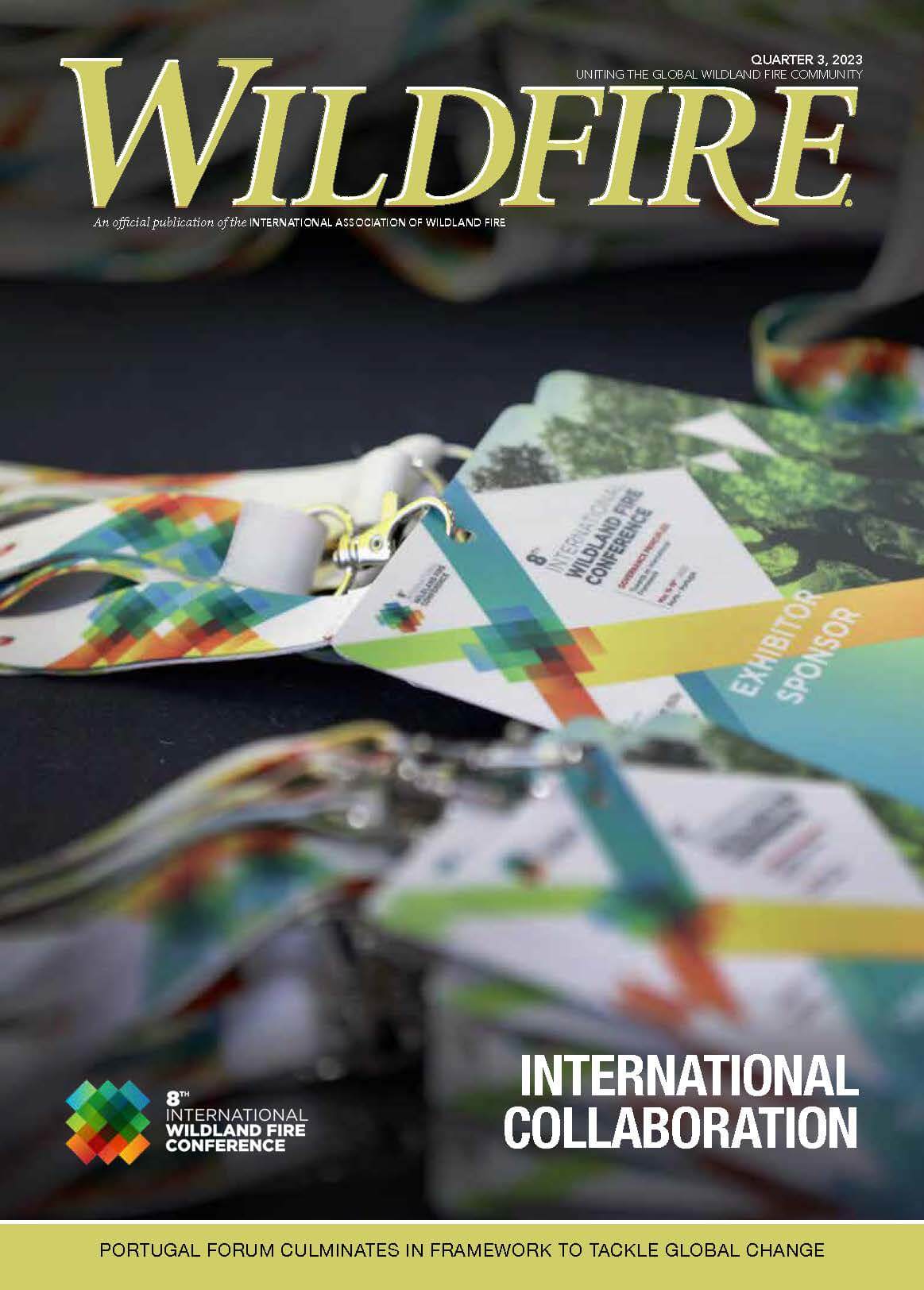Each year since 2007, in an effort to continue to promote the scholarly pursuits and graduate level training within the global wildland fire community, the International Association of Wildland Fire has awarded two graduate-level scholarships valued at $3,000 USD to Master of Science (M.Sc.) or Ph.D. students studying wildland fire or wildland fire-related topics. Student submitted essays are evaluated by an international panel of fire science experts and one award recipient is chosen for the Masters level and one for the Doctoral level.
Congratulations to this year’s recipients:
Noémie Gonzalez Bautista, PhD candidate, Université Laval, Québec, Canada
Noémie received her first master’s degree in environmental science in 2005 from the Institut National Polytechnique de Lorraine (France). After several years working in environmental education, she returned to university to earn a master’s degree in ecological anthropology from the Museum d’Histoire naturelle de Paris (France) which led her to her present PhD research in anthropology at Université Laval (Québec, Canada). For this project she will be working with the Atikamekw community of Wemotaci in the Nitaskinan territory within the province of Québec, and with the SOPFEU, the provincial forest fire protection agency. The primary objective of her study is to understand and to describe the relationship between these two groups, with a particular emphasis on their respective ways of interacting with wildfires and the territory. In particular, she will be examining the coexistence of SOPFEU’s technical knowledge and know-how and indigenous knowledge and know-how.
Noémie hopes that this study will serve as a tool to help SOPFEU and the Atikamekw, as well as other forest fire management agencies and First Nations, to share knowledge, experiences and capacities for better wildfire management and more resilient communities.
Monique Wynecoop, Master of Science, Fire Science Program, College of Natual Resources, University of Idaho
Monique received a dual major in Ecology and Conservation Biology and Fishery Sciences and a minor in American Indian Studies at University of Idaho in 2010. She is now employed as a USFS Fire Ecologist for the Colville National Forest and is pursuing a Masters of Science in the Department of Forest, Rangeland, and Fire Sciences at the University of Idaho. She is Mountain Maidu and her husband and children are Spokane Tribal members. Her research project is inspired by her family and the cultural importance of their ancestral homelands. It is her goal that her children and all of the future generations of local tribes feel that their best interests are addressed in the management of natural resources, on and off the reservation.

As a Fire Ecologist, and part of the monitoring committee, she developed her thesis as a collaborative socio-economic and fire effects monitoring project for the Colville National Forest Collaborative Forest Landscape Restoration Program (CFLRP). The project emphasizes cross-cultural collaboration and fire ecology of understory vegetation of the western half of the Colville National Forest. She uses modified monitoring techniques to look at the impacts of wildfire and U.S. Forest Service fuels reduction treatments on understory vegetation while also using a participatory GIS program developed by the Rocky Mountain Research Station (RMRS) to look at the perspectives of the Confederated Colville Tribal community regarding how their cultural practices and livelihoods are being impacted by such treatments. Her research has required constant collaboration and trust-building between all parties involved, and she plans on continuing this monitoring project as part of her Forest Service position to further collaboration and knowledge-sharing between local tribal and non-tribal governments and scientific communities for years to come.
